Among thousands of other Belarusian prisoners at least five are special: Uladzimir Asipenka, Mikalai Autukhovich, Maksim Dashuk, Artsiom Dubski, and Yury Liavonau. They share at least three common characteristics.
First, they all have something to do with entrepreneurship and are opponents to the country’s political leadership. Asipenka, Autukhovich, and Liavonau are businessmen from Vaukavysk (Hrodna region, west Belarus). Dubski and Dashuk are personages of the notorious “Process of 14” launched against last year’s entrepreneurs’ manifestation participants. They all have been once sentenced to a term in jail (except Asipenka, who is a friend and companion of Autukhovich). Human rights defenders called their cases political.
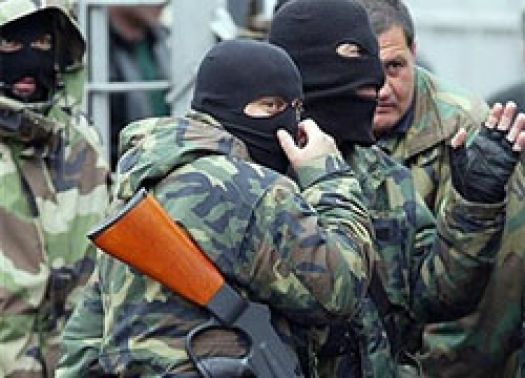 Second, all the five were detained during 2 weeks – from 8 until 23 February this year. Entrepreneurs from Vaukavysk were arrested by even 30 well-armed operating officers of the special militia group “Almaz”, left. The arrest rather resembled an anti-terror operation with the detainees beaten up, searches and metal-finders applied. Artsiom Dubski was detained in Homiel (south-east Belarus), when getting home from Ukraine by train. Maksim Dashuk was arrested just like Aliaksandr Barazenka some time before: after summoning him to the investigator’s office.
Second, all the five were detained during 2 weeks – from 8 until 23 February this year. Entrepreneurs from Vaukavysk were arrested by even 30 well-armed operating officers of the special militia group “Almaz”, left. The arrest rather resembled an anti-terror operation with the detainees beaten up, searches and metal-finders applied. Artsiom Dubski was detained in Homiel (south-east Belarus), when getting home from Ukraine by train. Maksim Dashuk was arrested just like Aliaksandr Barazenka some time before: after summoning him to the investigator’s office.
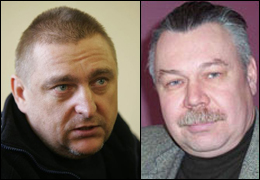 Third, all the detainees are charged with criminal offences. Autukhovich, Liavonau (right), and Asipenka have been charged with the arson of the house of former local militia chief Vital Katsuba in 2004. However, Katsuba himself has no claims against the detainees. Another person was sentenced to jail for this crime some time ago. The officers failed to find arms at the detainees’ homes. The investigator has prohibited the relatives of the entrepreneurs from defending their interests as lawyers.
Third, all the detainees are charged with criminal offences. Autukhovich, Liavonau (right), and Asipenka have been charged with the arson of the house of former local militia chief Vital Katsuba in 2004. However, Katsuba himself has no claims against the detainees. Another person was sentenced to jail for this crime some time ago. The officers failed to find arms at the detainees’ homes. The investigator has prohibited the relatives of the entrepreneurs from defending their interests as lawyers.
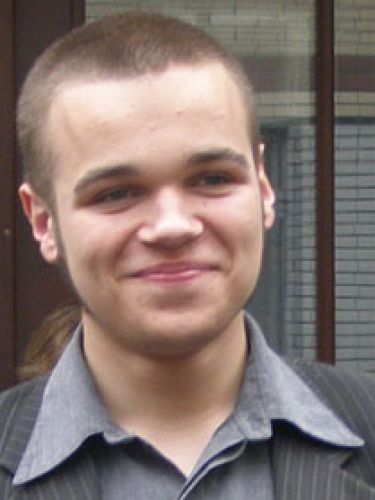 A charge brought against Maksim Dashuk, left, was a violation of the sentence conditions. He is below 18 years old, so he is put under the home arrest like the other characters of the “Process of 14”. Dashuk tells he had been repeatedly warned “for not being at home in proper time. I was allowed to be out only two hours a day. But I had to help my mother, as my dad died in April. As a minor, I had no job”. After a night in a pre-detention jail, he was released with a written undertaking not to leave the country before the hearing.
A charge brought against Maksim Dashuk, left, was a violation of the sentence conditions. He is below 18 years old, so he is put under the home arrest like the other characters of the “Process of 14”. Dashuk tells he had been repeatedly warned “for not being at home in proper time. I was allowed to be out only two hours a day. But I had to help my mother, as my dad died in April. As a minor, I had no job”. After a night in a pre-detention jail, he was released with a written undertaking not to leave the country before the hearing.
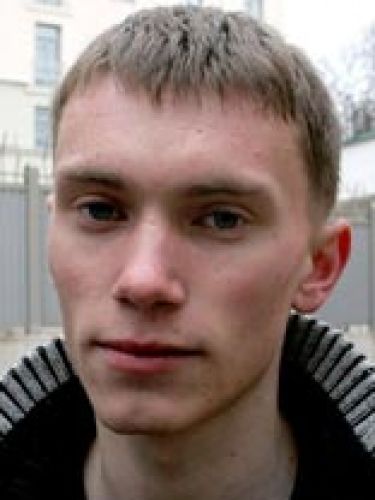 Another suspect in the “Process of 14” Artsiom Dubski, right, was also under home arrest. He was arrested for the same reason (violation of the sentence conditions). Besides this, the militia of Asipovičy (Homiel region) has charged Dubski with using not his own SIM-card for entering Internet. It has reportedly caused damage to the mobile connection company Velcom. The hearing in Dubski’s case is scheduled for 3 March.
Another suspect in the “Process of 14” Artsiom Dubski, right, was also under home arrest. He was arrested for the same reason (violation of the sentence conditions). Besides this, the militia of Asipovičy (Homiel region) has charged Dubski with using not his own SIM-card for entering Internet. It has reportedly caused damage to the mobile connection company Velcom. The hearing in Dubski’s case is scheduled for 3 March.
***
The Belarusian authorities insist the five opposition activists were detained for criminal reasons. A range of stories about the “Arson case” appeared in the pro-government media. They claimed some arms and explosives were found at the entrepreneurs’ homes.
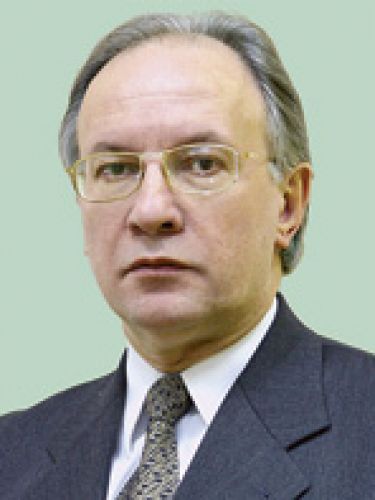 The foreign minister of Belarus Siarhei Martynau, left, told on 14 February in his interview to Frankfurter Allgemeine Zeitung: “We could never arrest people for no reason, risking our relations with the EU. Charges were brought against these citizens legally, as the law-enforcement agencies had enough reasons to suspect them of crimes. No political implications here”.
The foreign minister of Belarus Siarhei Martynau, left, told on 14 February in his interview to Frankfurter Allgemeine Zeitung: “We could never arrest people for no reason, risking our relations with the EU. Charges were brought against these citizens legally, as the law-enforcement agencies had enough reasons to suspect them of crimes. No political implications here”.
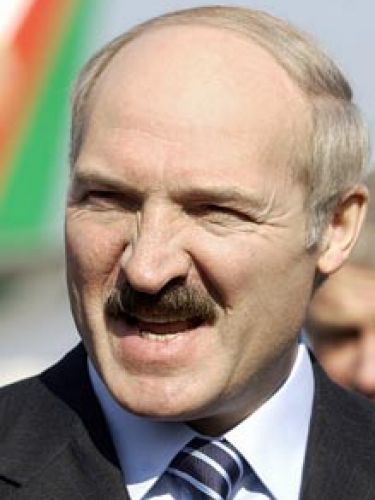 The President of Belarus Aliaksandr Lukashenka, right, summarized the official prosecution position on 17 February: “Everybody who was caught for his offenses in this country becomes an “oppositionist” straight away. They in Europe already understand it. Private persons are not allowed to keep automatic weapons. I cannot allow terror in this country“
The President of Belarus Aliaksandr Lukashenka, right, summarized the official prosecution position on 17 February: “Everybody who was caught for his offenses in this country becomes an “oppositionist” straight away. They in Europe already understand it. Private persons are not allowed to keep automatic weapons. I cannot allow terror in this country“
The detained entrepreneurs from Vaukavysk were officially charged just a day after – on 18 February.
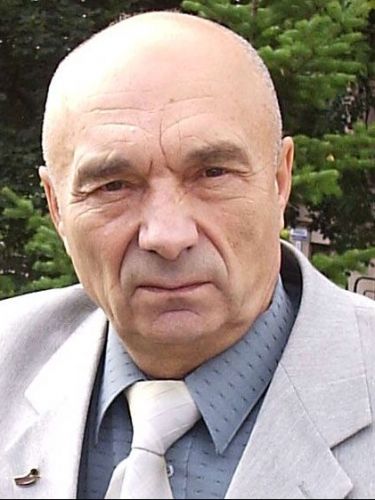 Independent analysts and human rights defenders disagree with the charge categorically. “This is a model provocation in the spirit of “lukashism” and his special services,” – claims Aliaksandr Kamarouski, left, who is the chairperson of veterans’ association The Fatherland’s Defenders and a companion-in-arms of Autukhovich. – “Lukashists can pin anything upon anybody. We had a similar experience two and a half years ago with a youth activist Pavel Krasouski. He was accused in two offences: blasts in Viciebsk (north Belarus – auth.) and a rape. Then it turned out to be chekists who organized the blasts. As for the rape, after the investigation it was discovered, that at the moment of the crime Pavel Krasouski was 12, and he weighed 32 kilos”.
Independent analysts and human rights defenders disagree with the charge categorically. “This is a model provocation in the spirit of “lukashism” and his special services,” – claims Aliaksandr Kamarouski, left, who is the chairperson of veterans’ association The Fatherland’s Defenders and a companion-in-arms of Autukhovich. – “Lukashists can pin anything upon anybody. We had a similar experience two and a half years ago with a youth activist Pavel Krasouski. He was accused in two offences: blasts in Viciebsk (north Belarus – auth.) and a rape. Then it turned out to be chekists who organized the blasts. As for the rape, after the investigation it was discovered, that at the moment of the crime Pavel Krasouski was 12, and he weighed 32 kilos”.
 Human rights defender Aleh Vouchak, right, notes: “The Belarusian TV is lying. There were no weapons or explosives confiscated in homes of Autukhovich, Liavonau and Asipenka, simply because none were there in the first place. The only thing confiscated was a soldering iron kit. But the TV was very prompt, which means that the action against the leaders of the entrepreneurs was well-planned. Mikalai Autukhovich was due to release ahead of schedule on 10 February. They must have not wanted to release him, so they arranged the provocation”
Human rights defender Aleh Vouchak, right, notes: “The Belarusian TV is lying. There were no weapons or explosives confiscated in homes of Autukhovich, Liavonau and Asipenka, simply because none were there in the first place. The only thing confiscated was a soldering iron kit. But the TV was very prompt, which means that the action against the leaders of the entrepreneurs was well-planned. Mikalai Autukhovich was due to release ahead of schedule on 10 February. They must have not wanted to release him, so they arranged the provocation”
The activists of the civic initiative Charter’97 are confident the Belarusian government has started a new informational war against its opponents: “The aim of the informational war is promoting the arson topic and, in the mass perception, connecting it with the opposition”.
Intimidation of the society and necessity to have several hostages as an object of bargaining with the West are believed by some experts to be other goals of what they call the informational war.


